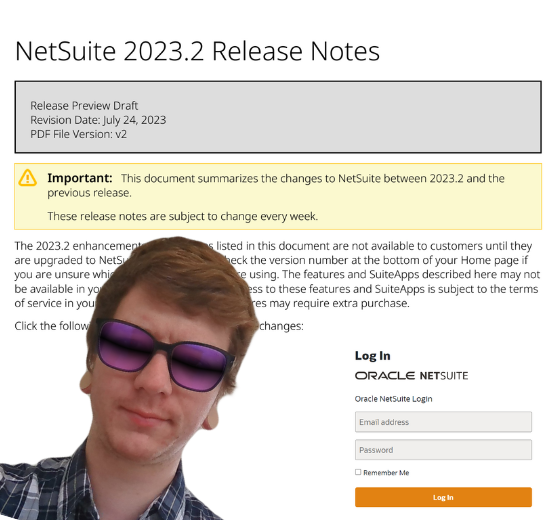It has been reported this month that FinTech is one of the fastest growing sectors with a key role to play in economic recovery in the UK. And as FinTech Week London kicked off on Monday, 12 July with an opening speech from Deputy Mayor of London for Business, Rajesh Agrawal, it was placed firmly on the agenda as the event set out to cover some of the key topics affecting the industry today.
In its eighth year, with previous conferences being held in-person, and 2020’s event being scuppered by the pandemic, this year’s FinTech Week London featured a hybrid format – demonstrating how we have all had to adapt our approach to an evolving landscape. A combination of virtual presentations and stimulating in-person events covered topics including Open Banking, digital identity and the next big things in Fintech such as green finance.
But in order to capitalise on these emerging trends in FinTech, players must be geared up to do so – and along with these developments in the space come challenges and requirements to address issues such as compliance, cybersecurity and maintaining customer relationships. Having a robust Enterprise Resource Planning (ERP) solution such as Oracle NetSuite will enable FinTech firms to do just that… let us explain further.
Using AI to drive strategic business decisions
Finance plays a huge role in decision-making for any business, and finance professionals are having to become more and more strategic in their roles in an ever-changing business landscape comprising challenging economic conditions. As the opportunities in FinTech grow, having a 360-degree view of the business – so that these opportunities can be capitalised upon and risks mitigated – is crucial. But just as important is the capability to glean real-time insights from which informed business decisions can be made. Looking forwards, rather than relying on backward-looking data.
Artificial Intelligence (AI) provides much more than simply the automation of manual – and often menial tasks – that can provide significant efficiencies to any business and holds many benefits. From automating key business functions such as invoicing, income and cash flow through to providing access to real time information on business financials, cloud-based ERP solutions such as Oracle NetSuite take care of these time-consuming tasks. More than that, when the automation of these processes is followed with predictive capabilities that can prescribe the next best action, the whole process becomes even more efficient and effective.

AI uses advanced machine learning and sophisticated data science to help distil the data, interpreting it through technology analysis to provide a translation of insights that FinTech firms can use to make the right decisions. This approach is proven to deliver success: a recent study has highlighted that finance professionals within organisations that adopt AI outperform their non-adopting peers – with 47 per cent of adopters believing their companies were performing strongly, compared with just 28 per cent of non-adopters. It’s clear to see that predicting future growth and market opportunities is greatly aided with the implementation of AI – and this is becoming more and more recognised in this sector.
Maintaining compliance in a fast-paced industry
Compliance is a kingpin of the financial world – and FinTechs must be at the forefront of this. One of the key topics discussed at FinTech Week London was Coopetition – the competition and simultaneous collaboration of ‘big banks’ and ‘big tech’ firms, i.e. FinTechs. As this coopetition develops to deliver the varying services needed in an evolving space, keeping customers safe and remaining compliant to all stakeholders must not be de-prioritised.
The numerous data points that exist in this space will surely grow along with the opportunities, and therefore the need to manage these effectively and compliantly is key. Using a cloud-based solution such as Oracle NetSuite removes the potential for data to be stored incorrectly, duplicated or being outdated, as rather than being stored in disparate systems, it is integrated, providing one single version of the truth. This not only facilitates compliance with growing regulatory burden including GDPR, but as the solution is updated automatically, the latest version is always operated to ensure optimal functionality in managing compliance. Cyber security – another key consideration and concern for FinTech firms – is taken care of by NetSuite’s robust system that protects users from breaches or attacks. In a world where services such as Buy Now Pay Later – a hugely popular finance feature right now – brings with it greater responsibility on FinTech firms to protect from fraud, ensuring a high level of cybersecurity is a must.

Keeping the customer journey at the fore
As the financial arena is constantly reinventing itself, evolving in a rapidly changing world – exacerbated by the pandemic and the changes it has wrought – keeping the customer journey at the forefront must remain a priority in a hugely competitive landscape. For a FinTech start-up looking to develop a consumer app-based service or offering, for example, having an understanding of the customer, their lifestyle and intentions is crucial. AI can play a huge part in this – and AI is a feature of Oracle NetSuite’s Customer Relationship Management (CRM), which allows the management of marketing campaigns, sales opportunities, customer services and partners in one solution. When all this is integrated into other business functions, and can be integrated across multiple divisions or subsidiaries, it provides a powerful unified solution with no missing pieces of the puzzle, and facilitates seamless customer journeys.
From green finance opportunities to support the climate change agenda through to the growing area of cryptocurrency and De-Fi, the world of FinTech has become an exciting space, underpinned by evolving and advanced technology. Unless FinTech players invest in the same technology foundation for their own business architecture, they may risk falling behind in a sector moving forward at breakneck speed.
To find out how the Oracle NetSuite cloud-based ERP solution could help your Fintech enterprise, complete our call back form and a member of our experienced team will be in touch. Become the next on our growing list of FinTech customers to benefit from our in-depth knowledge, but in the meantime, why not read how we helped FinTech firm OpenPayd to operate with a globally compliant comprehensive financial accounting system.
Keep reading

What is a NetSuite implementation partner? How do you choose one?

Technology fit for total customer service in 2024

Retail and wholesale distribution: how to improve supply chains

Ditching Sage 1000: what you need to know from businesses that have done it

6 ways AI-ready Microsoft Dynamics 365 helps chartered associations serve members

6 retail and wholesale distribution challenges and how NetSuite solves them

The most exciting features in Microsoft Dynamics 365 2023 Release Wave 2

How to manage a new NetSuite Release: one expert's update process

What’s in NetSuite Release 2023.2?

